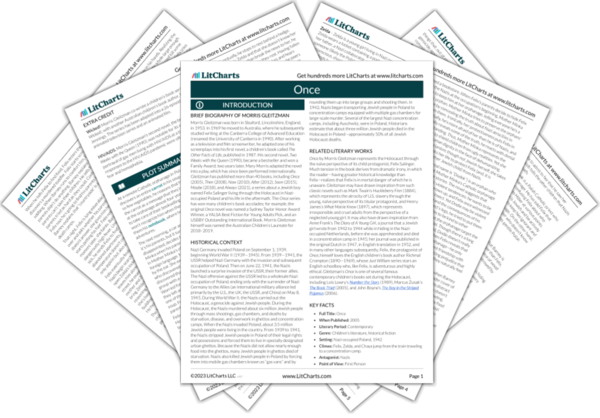In prior scenes, Felix has gone from thinking stories are useless distraction to realizing that they can be tools for survival. In this scene, Felix realizes consciously what he already subconsciously knew: that stories can also be tools for enduring inescapable pain. Felix chooses to tell a story about a magic carrot to the dental patient; as carrots have previously represented hope in the novel, Felix’s choice of story suggests he is trying to give the patient hope for a future without pain.
